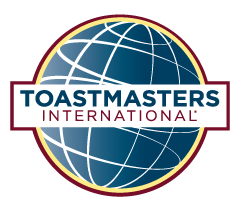Humorous Competition Speakers
In Autumn there will be a Humorous Speaking Competition which involves a prepared speech competition between 5-7 minutes and a table topics competition between 1-2 minutes
Below will be guidelines on each speech and a few tips from other speakers who have done the competitions, and have written up there notes.
Plus also – see ‘What makes a winning speech’ this is where you can see what marks you will get from the Judges, example out of 100, 5% goes towards grammar while 15% goes toward speech structure
| Contest | Minimum Time | Maximum Time |
| Humorous Speech | 4 minutes 30 seconds | 7 minutes 30 seconds |
| Table Topics | 1 minute | 2 minutes 30 seconds |
Humorous Speaking Competition
Purpose
To provide an opportunity for speakers to improve their speaking abilities and to recognize the best as encouragement to all. Provide an opportunity to learn by observing the more proficient speakers who have benefited from their Toastmasters training.
To recognize the value of humor in speaking.
Speech Preparation
The subject for the humorous speech shall be selected by the contestant. The speaker should avoid potentially objectionable language, anecdotes and material.
Contestants present a humorous speech that must be thematic in nature (opening, body, and close), not a monologue (series of one-liners).
Thematic – having or relating to subjects or a particular subject.
Speech Time
Contestants must prepare their own five to seven minute speech, which must be substantially original. Any quoted material must be so identified during the speech presentation.
| Green Light | Yellow Light | Red Light |
| 5 minutes | 6 minutes | 7 minutes |
Tips from other websites
https://mannerofspeaking.org/2009/11/29/anatomy-of-a-humorous-speech/
You have a District winning speech written out for you with notes in red discussing what was going through his mind as he was speaking, very insightful article – see the article here
Snippet from the rulebook (best to read the PDF)
Contestants must create their own speeches, and each must be substantially original.
- Twenty-five percent or less of the speech may be devoted to quoting, paraphrasing, or referencing another person’s content. Any quoted, paraphrased, or referenced content must be so identified during the speech presentation.
- Before all contests, every contestant must certify in writing to the chief judge that the content of their speech is or will be substantially original by using the Speaker’s Certification of Eligibility and Originality (Item 1183).
Table Topics Competition
Purpose
To provide an opportunity to learn by observing the more proficient speakers who have benefited from their Toastmasters training.
To encourage development of impromptu and/or extemporaneous speaking skills and to recognize the best as encouragement to all.
Topics
The topic should be general in nature and not require specialised knowledge. All Contestants are taken out of the room and brought back individually by the Usher.
Thereby a Contestant does not hear the topic or any other Contestant’s speech before delivering their own speech. Speech Time 1-2 minutes
Speech Time
| Green Light | Yellow Light | Red Light |
| 1 minute | 1 minute 30 seconds | 2 minutes |
Tips from other websites
https://charuzu.files.wordpress.com/2014/08/table-topics-contest-tips-and-strategies-by-melody.pdf
A PDF download of some tips
What makes a winning speech
So what is the difference between a winning speech and a Winning Area Competition Speech?
The answer is in the criteria used by the Judges.
Unlike a speech that is evaluated against a manual, a competition speech is marked against a set of prescribed criteria; so whilst your speech may be well matched to the objectives of the manual in say “vocal variety” or “body language” it has to be judged against a different specification.
This means that sometimes you can sit in a contest, especially further up the competition chain and think :-
“Well that doesn’t make much sense – the first speaker was much funnier than the second, but they didn’t win. What were the judges thinking about?”
They may not have won because their presentation was a series of funny stories, of one-liners rather than a speech with a humorous theme and the Judges may well have been thinking:-
“Good audience reaction say 12 of the 15 marks, but poor speech development, effectiveness and value so only 20 marks out of a potential 40.”
The other speaker who had a well crafted speech with structure and content may have scored well on the development, effectiveness and value but less well on the lower scoring criteria “audience reaction”…audience reaction also includes attentiveness, interest and reception…not just laughter.
The Humorous Speech should be a crafted speech, not a monologue or collection of jokes – it should have some value to the audience. And it shouldn’t be rude…you can infer and imply but you shouldn’t be blatant…in the words of Coco Chanel “it’s half what you’ve got and half what they think you’ve got”
So let’s look at the criteria:
CONTENT 55% of the total:
Speech Development [ Structure, opening, body, support material] 15%
- Effectiveness [Excitement created, suspense, the unexpected twist, surprise, connection of humorous events, achievement of purpose] yup only 10%
- Speech Value [ideas, logic, original thought] 15%
- Audience Response [ attentiveness, laughter, interest, reception] 15%
DELIVERY 30% of the total:
- Physical [appearance, body language] 10%…….yup the same score as all the things you think about should be in a humorous speech under effectiveness!
- Voice [ flexibility, volume] 10%
- Manner [directness, assurance, enthusiasm] 10%
LANGUAGE 15% of the total:
- Appropriateness [ to speech purpose and audience] 10%
- Correctness [ grammar, pronunciation, word selection] 5%
Hope that helps explain why Judges get such a hard time, and what we need to think about when we prepare our speeches.
Jo Haskins
Thamesdown Speakers
